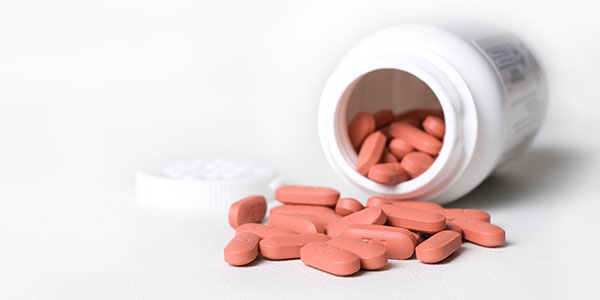What Causes Stomach Ulcers?
It’s impossible to ignore the gnawing, aching abdominal pains that accompany a stomach ulcer. About 25 million Americans suffer from an ulcer at some point in their lifetime, according to the Centers for Disease Control and Prevention.
Contrary to popular belief, ulcers are not caused by psychological stress or the ingestion of spicy foods. Ronald Hsu, M.D., a gastroenterologist with the Sutter Roseville Medical Center, says two Australian researchers discovered in the early 1980s that a bacterium called Helicobacter pylori is the root cause of most stomach ulcers.
“Nobody believed them when this was discovered,” Dr. Hsu says. “The conventional thinking at that time was that bacteria couldn’t live in the stomach on account of the strength of gastric acid.”
Eventually, the medical community realized the two men were correct in their findings. Pathologist J. Robin Warren and physician Barry J. Marshall were awarded the Nobel Prize for Medicine and Physiology in 2005 for their discovery of H. pylori. Dr. Marshall famously infected himself with the bacterium in an attempt to prove its link to stomach inflammation and ulcers. It is now firmly established that the bacterium causes more than 90 percent of duodenal ulcers and up to 80 percent of gastric ulcers.
Bacteria and Stomach Ulcers
Not everyone who is infected with H. Pylori develops stomach ulcers, but those who do often experience burning pain anywhere from their navel to breastbone. Stomach ulcer symptoms are frequently worse between meals and at night, with pain lasting minutes or hours. The pain can come and go for several days or weeks.
Stomach ulcers, or sores, form when the acids that help digest food damage the walls of the stomach or small intestine. H. pylori bacteria enable this process by attacking the stomach lining, which is meant to protect the stomach from its own gastric juices. Once the bacteria have caused significant damage, acid can get through the lining and cause ulcers.
Pain Medications and Stomach Ulcers
While H. pylori is the main cause of most stomach ulcers, people who use non-steroidal anti-inflammatory drugs such as aspirin, ibuprofen and naproxen on a long-term basis are at a higher risk of developing the painful sores. Dr. Hsu says the continual use of these medications can damage the stomach wall, causing ulcers.

“This isn’t common in young people, but for those over the age of 60 who take these medications for pain relief or for osteoarthritis, prolonged use can cause stomach perforation and bleeding,” he says.
Stomach ulcers can also be exacerbated by the use of cigarettes and alcohol, which further irritate the inflamed stomach lining. Tobacco slows the healing of ulcers and increases the likelihood of them coming back. It’s a myth that antacids and milk can heal stomach ulcers, but they can provide some brief pain relief. Taking antacids as needed between meals and at bedtime can help ease discomfort.
Stress can also worsen ulcers as it can cause the body to produce larger amounts of acid, irritating an existing ulcer. Increased acid in the stomach makes it difficult for an ulcer to heal, just like picking at a scab on your skin or scratching a rash delays the healing process.
Treating Stomach Ulcers
If left untreated, stomach ulcers can cause gastrointestinal bleeding and severe anemia. Not to mention they continue to be extremely painful. In addition, studies show an association between long-term H. pylori infection and the development of gastrointestinal cancers.
Doctors typically diagnose ulcers via an endoscopy, which uses a thin, flexible tube with a light and video camera on the end, known as an endoscope, to visually inspect the digestive tract. A blood, stool or urea breath test can be used to detect the presence of H. pylori.
Whether an ulcer is caused by the H. pylori bacterium or the use of pain medications, Dr. Hsu says the first step in the treatment process is reducing the amount of stomach acid in the digestive system.
“Stomach acid makes ulcers larger, so the main treatment is to use acid-suppressing medications to reduce the amount of acid. This gives the stomach lining the opportunity to heal,” he says.
Proton pump inhibitors, histamine receptor blockers and other types of medications may also be prescribed to help relieve pain and protect the ulcer while it heals. Those with a confirmed H. pylori infection are also given a two-week course of antibiotics to eliminate the bacteria. Oftentimes two or more different types of antibiotics are used together to fight the infection. In some cases, surgery to repair your ulcer may be necessary if it doesn’t heal.
If you think you have a stomach ulcer, Dr. Hsu suggests contacting your doctor and requesting an appointment with a gastroenterologist to get it checked out. A gastroenterologist can work with you to develop a treatment and management plan that’s specific to your needs.
“Stomach ulcers tend to recur if untreated, so don’t ignore your symptoms,” he says. “Making lifestyle changes such as quitting tobacco, limiting your intake of alcohol and learning how to better manage stress can help you feel better. Avoid consuming foods that may cause additional discomfort, such as caffeinated drinks, fatty foods and spicy foods.”





